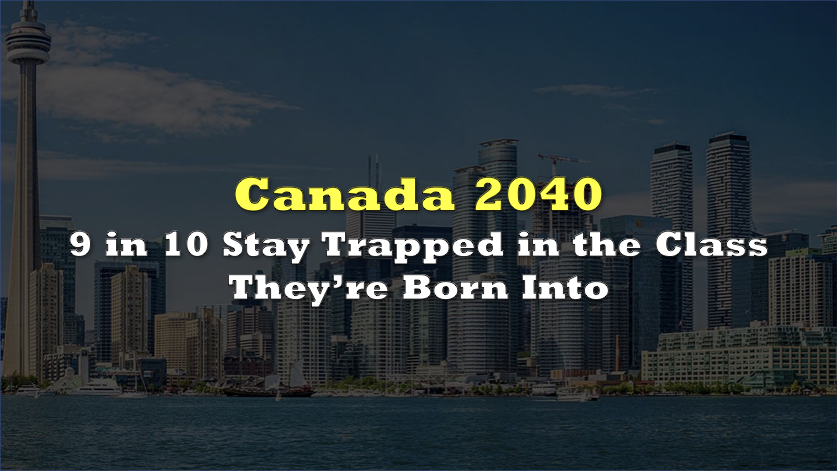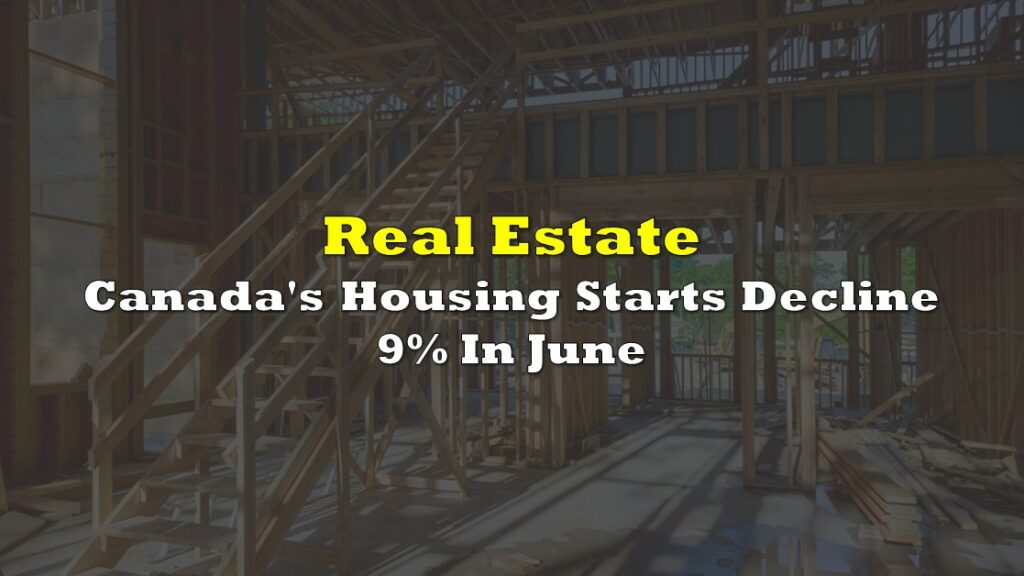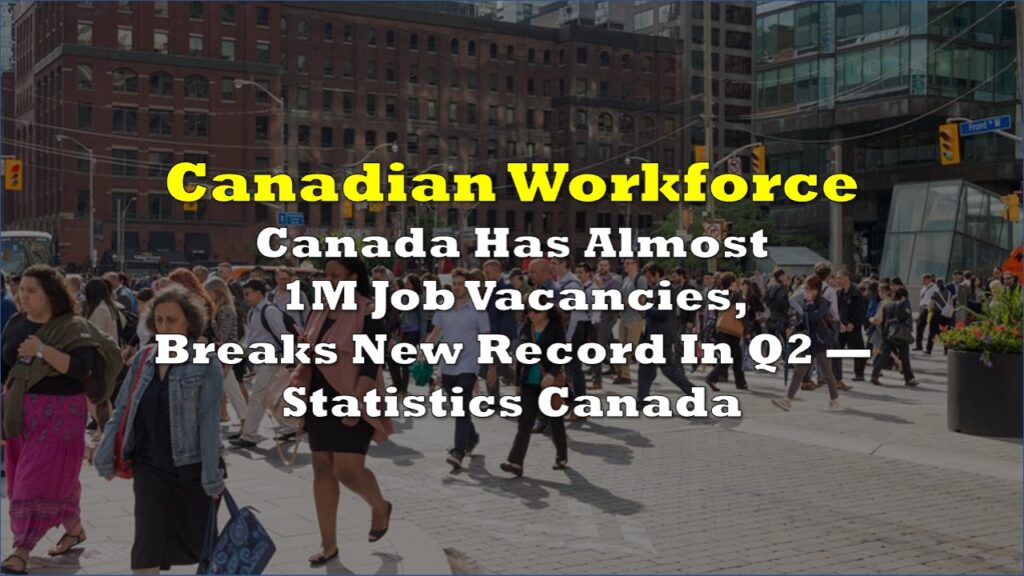A newly surfaced report from Policy Horizons Canada, an internal think tank under the federal government, outlines a grim potential future for the country—one where the foundational promise of social mobility is all but dead.
The document, released in January, imagines a Canada in 2040 where upward mobility has become “almost unheard of,” and a majority of citizens remain trapped in the socioeconomic status they were born into.
“Hardly anyone believes that they can build a better life for themselves, or their children, through their own efforts,” the report states. In this vision, Canada slides into a soft aristocracy where intergenerational wealth—not merit—determines one’s prospects.
The report, part of a series examining plausible futures, stresses that this scenario is not a forecast, but a warning: a plausible outcome if structural trends continue unaddressed.
🚨Absolutely SHOCKING report quietly released by the Government in January which predicts what Canada may look like in 15 years.🚨
— HoCStaffer (@HoCStaffer) April 21, 2025
A must read!
I've seen some references to it on here, but no summaries of the whole report. I decided to dig a little deeper. 🧵👇 pic.twitter.com/ReGMM5lk5q
Education, Housing, and AI
Post-secondary education, once viewed as a ladder to success, is depicted in the 2040 scenario as a costly, elitist institution detached from labor market needs.
“Relatively long program timelines mean significant opportunity costs,” it notes. The report warns that the system may become a stranded asset, with public support and enrollment declining.
The housing crisis is also projected to deepen. Homeownership, already a fading dream for many, is said to be “not a realistic goal.” Those who inherit property gain advantages that compound over time, while renters face climbing costs and shrinking mobility.
Meanwhile, AI is described as a great equalizer—only in the sense that it flattens opportunity. As automation proliferates, the value of human labor diminishes. The best AI assistants, available only to the wealthy, further entrench inequality. Gig work and side hustles become the norm—not to get ahead, but to survive.
This is quite the report.
— Brian Lilley (@brianlilley) April 21, 2025
Read this and remember, Bryan is reporting on something prepared by the Privy Council Office.
This is the non-partisan office of bureaucrats that supports the PM and PMO.
They are warning of a dire Canada in a few years without change. https://t.co/JnEZ3qjizL
Social Division, Mental Erosion, and Rejection of Institutions
The Canada of 2040 is deeply siloed—socially and economically. Class lines harden, both online and off. From algorithm-filtered dating apps to gated metaverses, citizens increasingly exist in echo chambers.
This fragmentation feeds widespread apathy, especially among youth. Aspirations clash with economic reality, fueling mental health crises and diminished civic engagement.
“Fewer people may have the drive to build and innovate,” the report warns.
The potential economic fallout is stark. As consumption declines, the consumer economy contracts. Wealth becomes concentrated in aging elites, who influence which industries thrive. Workers, frustrated and disillusioned, may flee to more promising jurisdictions—draining Canada’s talent pool and undermining its ability to fund aging populations.
Governments could lose relevance as grassroots alternatives—cooperatives, barter networks, informal subsistence economies—rise in response. Regulatory authority may weaken if citizens no longer believe in the legitimacy of institutions.
Perhaps most concerning, the report anticipates a growing rejection of the systems seen to have failed them: from the state itself, to capitalism, to specific social groups. Civil disobedience, tax evasion, and scapegoating could become common responses.
Who cares? 'Orange Man Bad'… That's all that matters now. https://t.co/nDRVM72nqk
— SmallCapSteve (@smallcapsteve) April 21, 2025
I have no idea what Canada will look like in 2040; but I do know that this report would have been unthinkable 10 years ago.
— Asher Honickman (@Honickman) April 21, 2025
"Future Lives: Social mobility in question"https://t.co/PDqTEN7ycB pic.twitter.com/8vTZFBbPhJ
Although the government has emphasized that the scenario “does not necessarily represent the views” of the state, the fact that it originated from within a federal strategic office—reporting through Employment and Social Development Canada—gives the warning unusual weight.
Information for this briefing was found via the sources mentioned. The author has no securities or affiliations related to this organization. Not a recommendation to buy or sell. Always do additional research and consult a professional before purchasing a security. The author holds no licenses.









